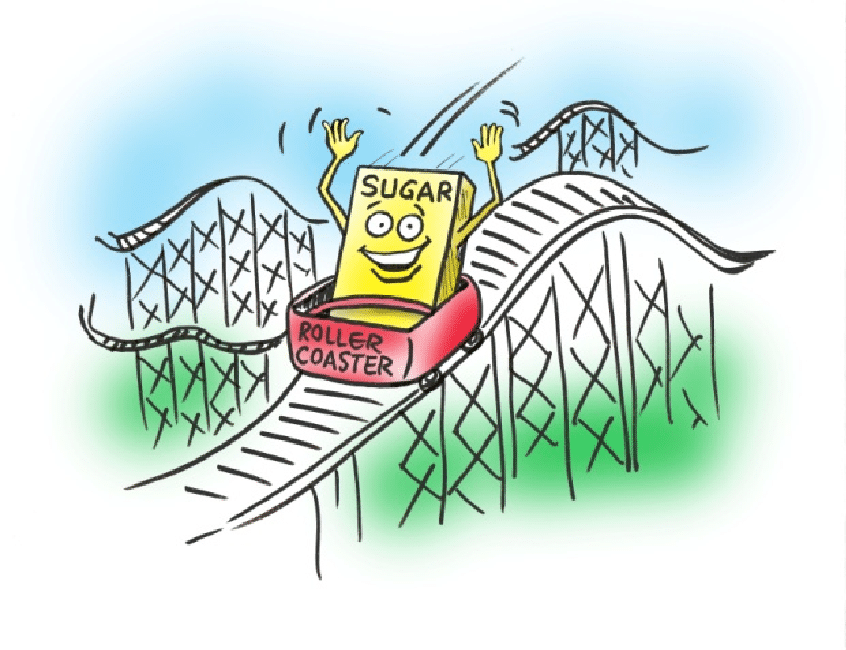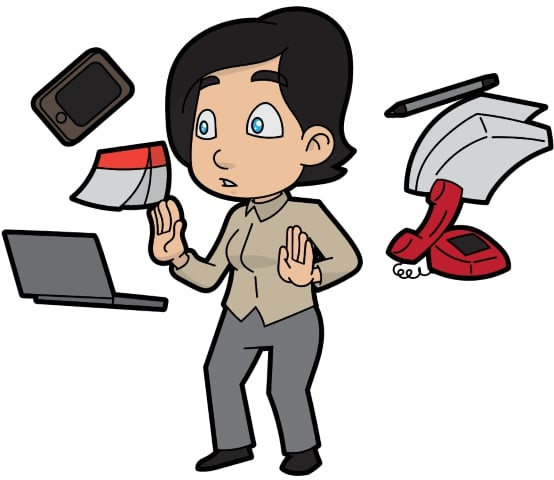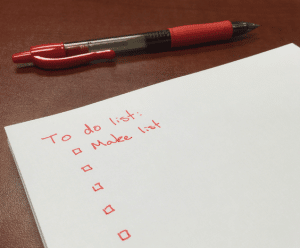How to increase your energy and motivation.
There are products galore to improve energy and motivation. There are energy drinks, exercise programs, self-help books, therapy, drugs, even coffee!
Here are two practical actions you can take to boost your energy, motivation, and general mood. Neither one will cost you any money, and they don’t take much time.

1. Smooth out your blood sugar:
Your blood sugar is the primary source of energy for your body, including your nervous system. If you eat in a way that creates low blood sugar, you may experience:
- Waking in the night and nightmares
- Brain fog and concentration problems
- Heart palpitations and anxiety
- Hunger, or the reverse: a feeling of aversion to food, even if you should be hungry
- Mood swings and nervousness
- Headaches
- Blurry vision
- Jittery, shaky feelings
- Lightheadedness, dizziness, and loss of balance and coordination
You can have low blood sugar from… eating sugar!
Eating sugar or refined carbohydrates (bread, chips, pasta, cakes, cookies) can put too much sugar into your bloodstream. Your body reacts to prevent high-sugar damage by flooding the bloodstream with a hormone (insulin) to bring the sugar levels down. The high sugar emergency caused too much insulin hormone to be released, and now the sugar drops way too low. You feel terrible and crave sweets, bread, chips—anything that will bring up the low blood sugar. But you overeat the carbs and sugar, and now your blood sugar goes too high. Your body has another sugar emergency, over-produces insulin again, and the whole cycle repeats. “Roller-coaster” blood sugar is a very common scenario and can cause chronic symptoms from low blood sugar. Solution:
- Avoid eating sugar (cake candy, cookies, ice cream, soda, beer, wine) and limit your carbs intake (bread, pasta, rice, and white potatoes).
- Eat protein (meat, eggs, cheese, nuts) with every meal and every snack.
- If you feel jittery, like you have low blood sugar, eat protein and vegetables instead of chips, bread, and sugar. Keep eating protein and veggies (for example, no-sugar peanut butter on celery) until you feel better.
Another way you can have low blood sugar is not eating regularly enough:
Your body runs out of stored blood sugar about four hours after a meal. So if you skip lunch, by dinner time, your body can have to break down protein from the muscles to make blood sugar. This problem is worse if you have fatigued adrenal glands. Your adrenal glands prevent your body from being damaged by stress, so if you’ve been surviving through the stress of the past few years, maybe they’re not in wonderful condition. Solution: Eat frequently enough to prevent running out of blood sugar.
- Eat within an hour of waking in the morning (you are running out of blood sugar from not eating since the night before).
- Eat again four hours after a meal.
- A snack will give you one to two hours to bridge two meals to avoid running out of blood sugar.
My patients often report remarkable improvements from eating this way. They can think more clearly, sleep better, and have more energy.

2. Stop feeling overwhelmed, and be more motivated! Do this simple exercise:
If you have too many jobs, responsibilities, deadlines, and things you are behind on—you may feel overwhelmed. It’s hard to be motivated to do more when you feel like you can’t keep up with what you’re already supposed to be doing. The problem: You are using up too many of your available “attention units.” You can feel irritable and at the end of your rope, or you may just feel tired and unmotivated.
The exercise:
- Take pen and paper and write out a list of the things you have your attention on. List the things you haven’t finished yet, or need to do. The list can be any length, but try to make it complete.

- Grocery shopping for this week
- Finish next phase of a major project at work
- Take the car in for maintenance
- Catch up on laundry
- Call and visit with a family member
- Buy a birthday gift for a friend
- Get the exterior of the house painted
- (Etc.)
- Circle the items on the list that you could complete (finish all the way) in the next hour.
- Get busy and do these tasks right now.
- Notice any difference in how overwhelmed you feel—do you feel better now?
- You can continue to work on your list. In general, do the tasks you can complete (finished all the way) first.
The reason that this exercise works: Every item on your list is using up some of your available attention units. If you free some attention units (regardless of the importance of the task), you will have more available for other tasks, plus you won’t be as overwhelmed.

